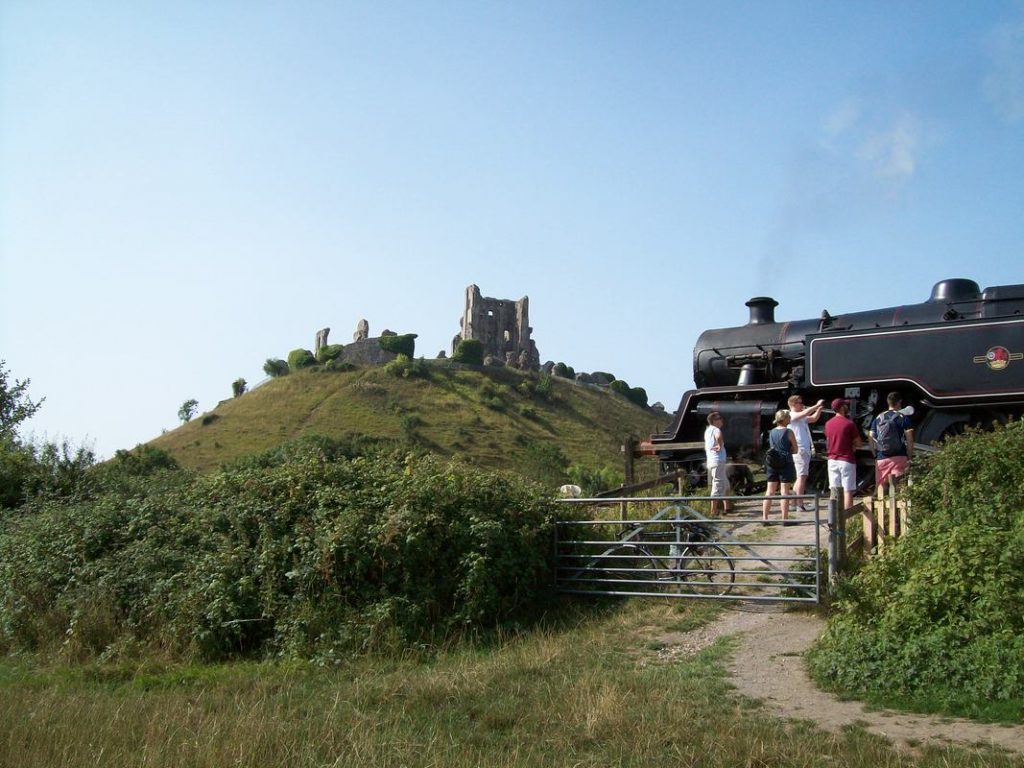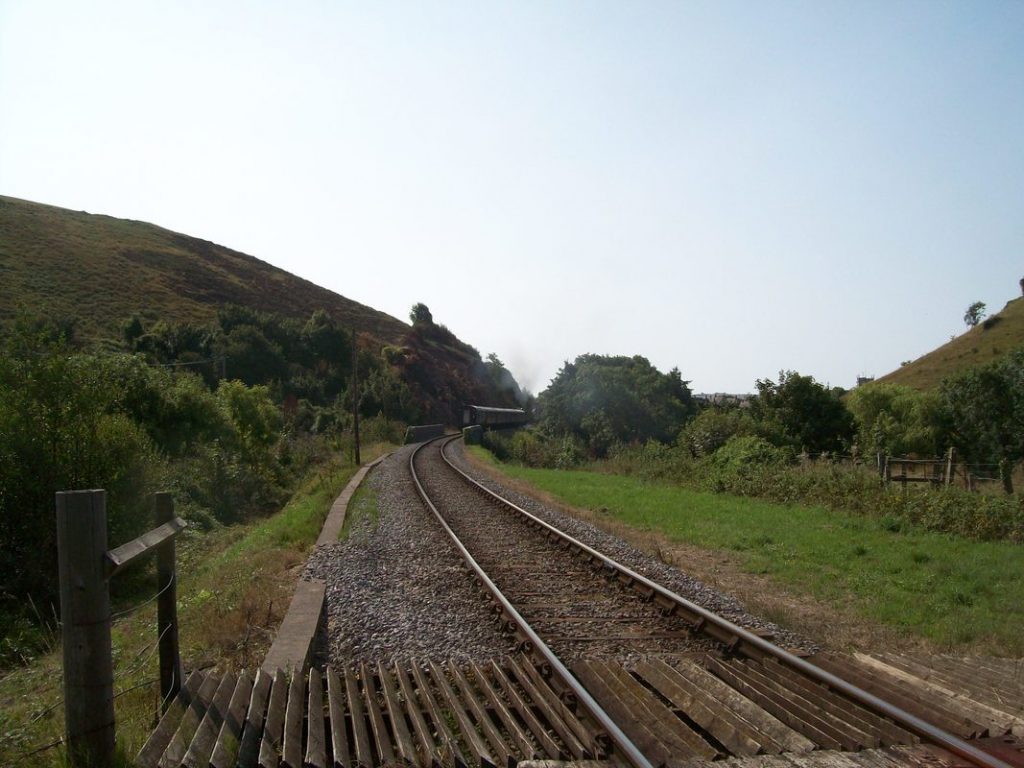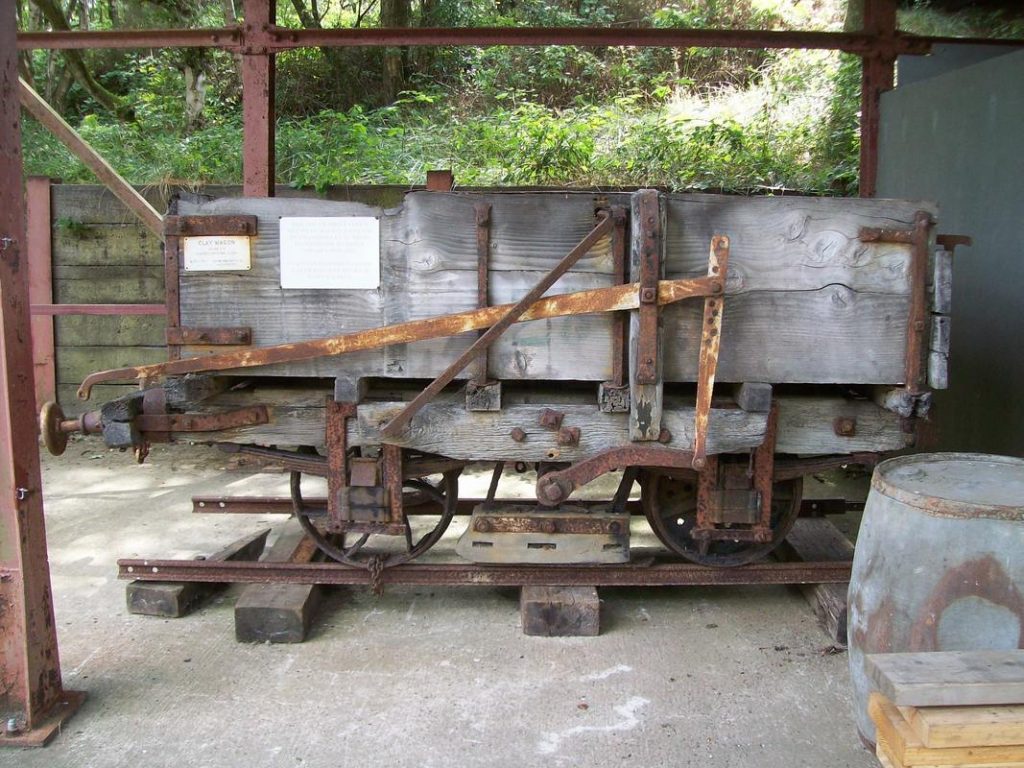There was a change of plan on Tuesday 7th August 2018. When the scout got to Yeovil Junction on the 0510 St. David’s, the pleasant buffet was closed for the day (proprietors attending a funeral) and so he rode into town in search of brekka.
There was none to be found and so he went down to Pen Mill where he remembered that there was a Co-op filling station nearby. After riding with his Costa coffee and all-day breakfast sandwich back to the station, he sat in the sun waiting for the train that he had meant to catch from Thornford.
After changing at Dorchester for the bliss of a Siemens’s Austrian-built Desiro, he rode from Wareham and was in Corfe well before the 1000 Norden departed.

Later, the scout was in the ruins of Corfe Castle, “slighted” (razed) after it was held against the Parliamentarians during the Civil War. +

When the scout got to Swanage, instead of riding east and catching the ferry for Sandbanks, he went back to Corfe to view the station museum. The tea was so good from the catering truck that he enquired about it, as they said many people do. “Dorset Tea” can be found in Central convenience stores, or in Waitrose where the scribe picked up a box today. Decent tea is essential to railway operation and it may be the reason why the Swanage has been so successful.
Then the scout hopped on the train for Norden and spent an hour or so in the mining museum, which doesn’t open until late morning.
In the early 1990s, thanks to the resident mining engineer, the scout was fortunate to be allowed down one of the Kingsteignton adits in the Bovey Basin, so much of what he saw at Norden was familiar.
Underground mining was given up in Purbeck, as in Devon, around the turn of the century. The scout was surprised to learn that the Purbeck deposits came from Devon and Cornwall in ancient times, there being no granite in Dorset.
When he chatted to the lady on the gate, she took it that his memory was of Cornish clay mining, which goes to show that the Devon operations are often overlooked. The Cornish have their museum at Carthew but there is little celebration of Devon ball clay mining.

